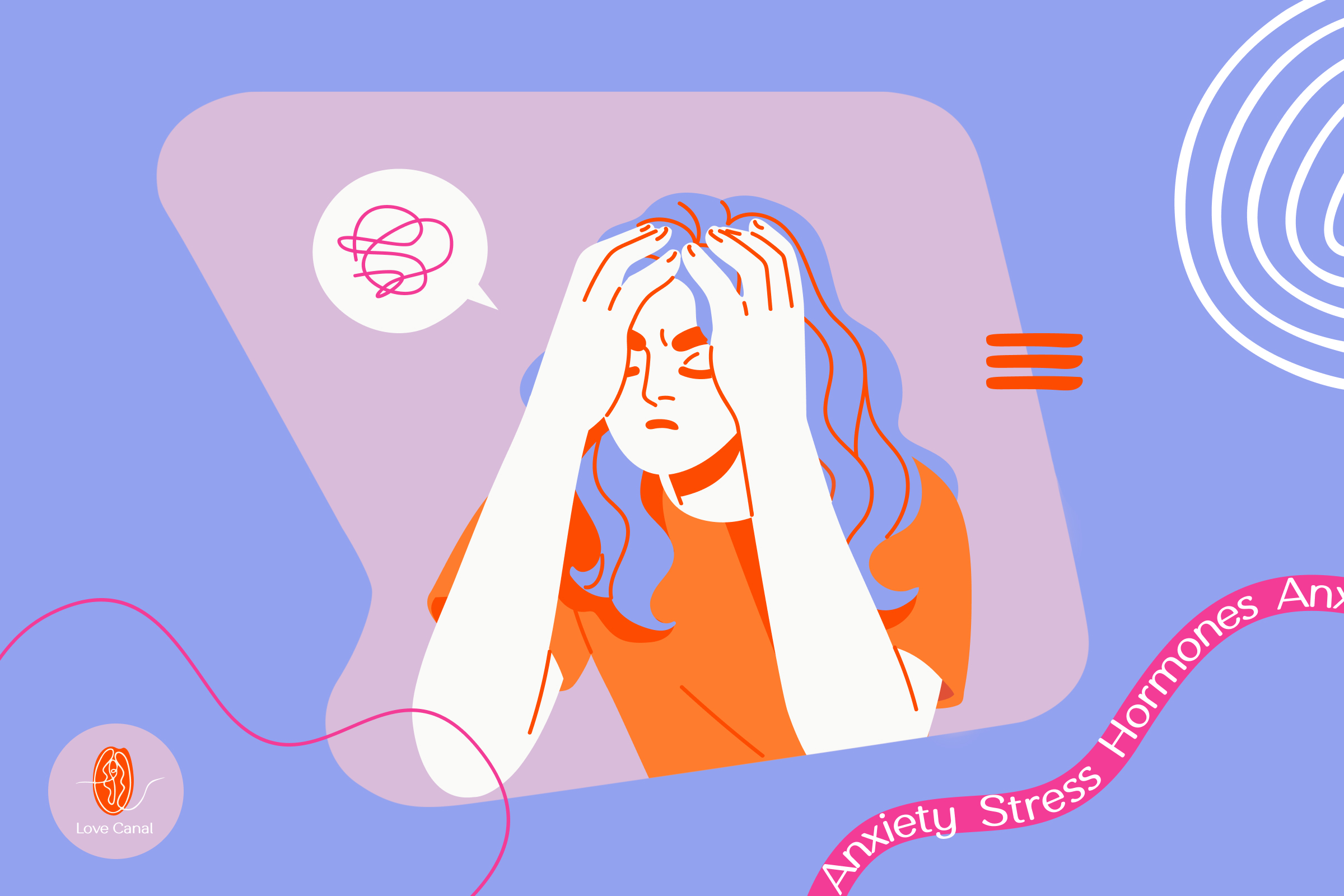
Anxiety, Stress & Hormones: Why Women Feel It More
Feeling stressed is nothing new. Whether it’s work, family, or relationships, stress sneaks into every part of life. But for Armenian women and young women, stress feels heavier — sometimes turning into anxiety, mood swings, or overwhelming fatigue. The reason isn’t just social pressure. It’s also biological and hereditary. Apart from our day-to-day stress, we’ve experienced war, loss, toxic masculinity, unhealthy relationships, sexual harassment, stalking, or even generational trauma passed onto us.
Hormones like estrogen and progesterone affect how women experience emotions. By understanding this connection, we can stop blaming ourselves for feeling “too emotional” and start seeing stress as something our bodies process differently.
Hormones and Stress: What’s Really Happening
Estrogen and serotonin: Estrogen helps boost serotonin, the “feel-good” brain chemical that keeps mood stable. When estrogen drops — before a period, after childbirth, or during perimenopause — serotonin also drops, which can make anxiety, sadness, or irritability more common. But hormones aren’t the only part of the story. Stressful experiences — such as being in a toxic relationship, facing workplace harassment, or dealing with daily pressures like finances and caretaking — can disrupt this balance even further. For many women, it’s not just biology or environment, but both working together, which makes the emotional weight feel heavier.
Progesterone and calmness: Progesterone usually has a soothing effect on the body, almost like a natural relaxant. When levels fluctuate, however, it can bring feelings of restlessness, worry, or difficulty sleeping. This is why some women notice heightened anxiety during certain phases of their cycle.
Cortisol and daily stress: Cortisol is the body’s main stress hormone. Research shows that women’s bodies sometimes release more cortisol than men’s when facing the same challenges. This can make everyday stressors feel sharper and harder to recover from — especially when combined with hormonal shifts or ongoing emotional strain.
When Stress Meets Everyday Life
- PMS & mood swings: Many women notice heightened anxiety before their period. This is a hormonal response, not “overreacting.”
- Motherhood & postpartum: After childbirth, hormonal changes plus exhaustion can trigger anxiety or sadness. Recognizing this early matters.
- Modern pressures: Balancing studies, work, family expectations, and social roles adds layers of stress. For Armenian women especially, cultural stigma around mental health makes it harder to seek support.
Signs Stress Is Affecting Your Mental Health
- Constant worry or “racing thoughts”
- Sleep problems or waking up tired
- Tension headaches or stomach pain
- Feeling irritable, sad, or disconnected
- Trouble focusing or making decisions
Coping Strategies That Help
- Breathing & grounding: Simple breathing exercises can calm the nervous system in minutes.
- Movement: Walking, stretching, or light exercise reduces cortisol and boosts mood.
- Talking it out: Sharing with a friend, partner, or therapist turns invisible stress into something manageable.
- Cycle tracking: Notice if your anxiety worsens during certain phases of your menstrual cycle — this awareness helps with self-care.
- Professional support: If stress feels overwhelming, a psychologist or psychiatrist can offer effective treatment and guidance.
Why This Conversation Matters in Armenia
In a recent private donor–organized seminar, surveys showed that 17 out of 20 women had little knowledge about mental health issues, yet after a single session:
- 11 women fully understood the link between stress and sexual health.
- 12 said they would adopt self-care practices such as breathing or stress management techniques.
- 9 women changed their views on what makes a healthy relationship.
Takeaway: Stress and anxiety do not make you weak. They reflect how your body and hormones respond to life’s challenges. With awareness, self-care, and the right support, women in Armenia can transform stress from something that controls them into something they can manage.